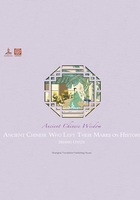
王夫之 Wáng Fūzhī (1619-1692)
Enlightenment Thinker
Wang Fuzhi, also known as Chuan-shan, was one of the greatest materialist and enlightenment thinkers during the late Ming Dynasty (1368-1644) and early Qing Dynasty (1644-1911). He became especially popular in modern China for his views on history and politics. Government should benefit the governed, not those in power, said Wang. A believer in natural law, he argued that society was always gradually progressing, moving in cycles, and not determined by fate or mystical structures.
Wang was born into a scholarly family. He began to study in an old-style private school when he was only four and when he reached 10, he had already read most of the classics.
However, he failed the provincial civil service examinations three times and didn’t pass it and gain the title of First-Degree Scholar until he was already 24 years old.
Soon, Manchus invaded the country and placed it under the Qing Dynasty (1644-1911). Wang remained loyal to the Ming rulers and spent his life first fighting the invaders and then hiding from them at the foot of Mount Chuan-shan, hence his alternative name.
While living in seclusion, Wang concentrated on study and writing. He wrote more than 100 books covering a wide range of areas, such as metaphysics, epistemology, moral philosophy, poetry and politics. However, many have been lost and the remaining ones have been compiled into Chuanshan Yi Shu (“The Remaining Books of Chuanshan”).
In terms of ontology, Wang believed that the universe is filled with qi (energy or material force). Qi is ubiquitous, infinite and an extremely fine substance which cannot be discerned by human beings through their senses.
Qi is divided into yin and yang, which interact in a dialectical manner. Since qi has always existed, so has the universe. Meanwhile, li (principle or idea), which was a central concept in traditional Confucian thought, doesn’t exist independently. It is only a property of qi, so it only exists in qi and the two become one entity.
Thus, Wang was a historical evolutionist in his thinking and condemned traditional, conservative and regressive ideas.

So, Wang claimed that each dynasty was better than the previous one. For instance, he asserted that the Han and Tang dynasties were more advanced than the Spring and Autumn Period (770-467 BC) and the Ming Dynasty exceeded the Han (206 BC-220 AD) and Tang (618-908 AD) dynasties in social development. So naturally, there was no golden age that we must try to emulate.
Thus, Wang became a proponent of a naturalist moral philosophy.
He believed that there are no values in nature. Virtues and values are assigned to objects and actions by human beings.
Wang was also against the concept of “eliminating human desires” promoted by Confucian philosophers in the Song Dynasty (960-1279).
Wang said that human desires should be satisfied to a reasonable extent and should not be simply suppressed.
With regard to epistemology, Wang emphasized the need for both the knowledge gained through the senses and the knowledge gained through reason. He employed the epistemological concepts of gewu (investigation and research of things) and zhizhi (to reach toward understanding) from the Confucian classic “Great Learning” to explain his ideas.
He said that gewu uses both the mind and senses to mainly gain knowledge and during this process thinking and reasoning is just supplementary. Meanwhile, zhizhi uses only the mind to clear up doubts and solve problems. And during this process, thinking and reasoning is the main purpose while gaining of knowledge is just supplementary.
Wang was the first ancient Chinese thinker who had made a comprehensive exposition about epistemology.